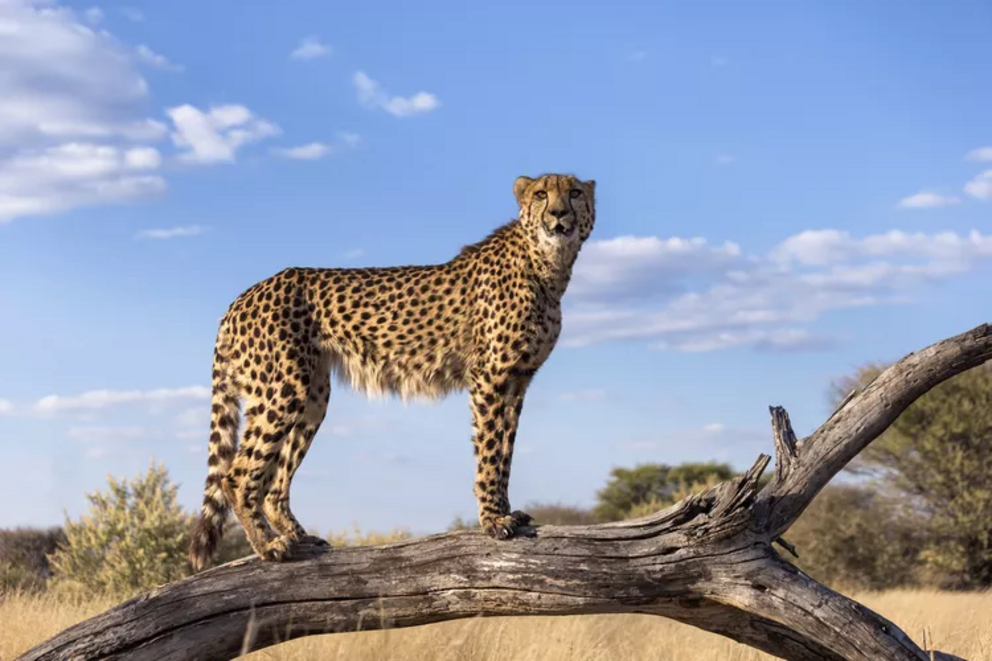Cheetahs can't roar, they meow instead
Plot twist! Cheetahs sound a lot like your house cat.
Lions ROAR. They make a terrifying, sonorous growl that can be heard up to 5 miles away. It's deep and full of command. Take a listen here:
Tigers, leopards, and jaguars all roar too. As members of the genus Panthera, not only are they totally fierce creatures, but the epihyal bone in the voice box is replaced by a ligament, explains BBC Wildlife Magazine. "This can be stretched, creating a larger sound-producing passage and thus a wider range of pitch. The more the ligament extends, the lower the sound generated when air passes across the vocal cords. In addition, the cords are large, unbroken, and fleshy, which produces deeper sounds."
In fact, one study found that a tiger's roar has the power to paralyze animals that hear it, including human with experience around tigers.
And then there's the cheetah.
Weighing in at up to 150 pounds, cheetahs are the world's fastest land mammal. They can accelerate from 0 to 60 miles an hour in only three seconds, striking prey in the blink of an eye. But fearsome as they may be, there is something they can't do: Roar. Cheetahs meow like a housecat. Unlike their roaring cousins, cheetahs also purr. Listen here:
BBC explains that the bones of the cheetah’s voice box comprise a fixed structure, with divided vocal cords that vibrate with both inhaling and exhaling. "This structure is the same for all the ‘small’ cats. While this design enables these cats to purr continuously, it limits the range of other sounds and prevents them from being able to roar." Awww.
Cheetahs have also perfected the chirrup—a bird-like chirp they often use to locate one another.
So there you have it. If you happen to find yourself lost on the plains and hear the sweet meows of a kitty cat, consider yourself warned.

